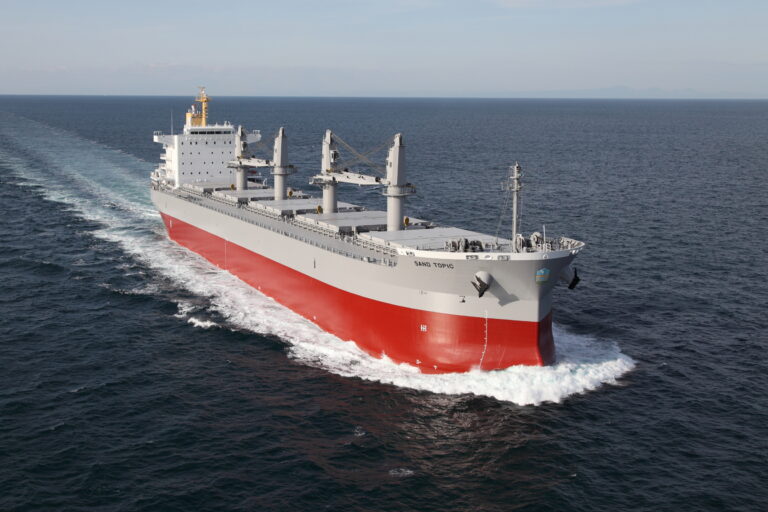A new EU project will bring together companies and researchers from across Europe to develop and convert a bulk carrier to sail on climate-neutral fuels and green power. The GAMMA (Green Ammonia and biomethanol fuel MAritime vessels) project began in January 2024 and will run for five years. It has received €13m (US$14m) from the European Commission’s Horizon Europe framework program for innovation (with a total project budget of €17m [US$18.4m]). The application process was led by Inspiralia.
The project involves 16 partners: Verkís (Iceland), ANT Topic (Italy), Fraunhofer (Germany), Aurelia (Netherlands), Ballard (Denmark), Sea Green Engineering (Italy), Energy Cluster Denmark (Denmark), SINTEF (Norway), Solbian (Italy), Améthyste (France), Elkon Elektrik (Turkey), Politecnico di Milano (Italy), ARM Engineering (France), RINA (Germany), Amnis Pura (Portugal) and Dotcom (Italy).
“On behalf of the entire group of partners, I can say that we are proud and grateful that the European Commission has chosen to support the GAMMA project and efforts to convert international shipping in a greener direction,” said Kjartan Due Nielsen, innovation manager at Verkís, which is leading the project. “We will retrofit a bulk carrier with highly innovative technologies and during a demonstration campaign we will prove that it is possible to replace auxiliary generators with a new fuel system that runs on e-fuels. After proof of concept in GAMMA, the next step would be to replace the main engines of a ship for a full energy transition. All in all, the project is very visionary and could be a green game-changer for shipping in the future.”
Long-distance maritime transportation supports 80-90% of all global trade. Therefore, there is considerable potential for climate-beneficial reductions in converting ocean-going transportation to green fuels. The IMO has set a goal for the maritime sector to reduce the industry’s greenhouse gas emissions to around net zero by 2050. The five-year GAMMA project will contribute to this.
An innovative fuel system will be installed. Ammonia and green methanol will be bunkered onto the ship and then converted into hydrogen with cracker and reformer technologies. The hydrogen will be purified and then converted into electricity with a fuel cell, which will provide electric energy to the vessel and thus replace the use of the auxiliary generators running on fossil fuel. In addition, part of the energy necessary to convert to hydrogen will be supplied by renewable energy – in this case, from PV panels installed on the hatch covers of the bulk carrier.
Fraunhofer Institute provides the conversion technology and Amnis Pura the purifying. The fuel cell is provided by Ballard Power Systems Europe and the PV panels by Solbian.
“We have several decades of experience from innovation within green fuels, and therefore look forward to contributing to GAMMA with our research to convert e-fuels to hydrogen and look forward to bringing the new green technologies in the project forward. Perhaps the results from GAMMA can also be applied in other parts of the transport sector, such as ground and air transport. We look forward to working with our European partners to strengthen the climate of the future, as well as growth and employment, to the benefit of us all,” said Dr Gunther Kolb, head of the energy division at Fraunhofer Institute for Microengineering and Microsystems.
To evaluate the environmental performance of the technologies in the project, Politecnico di Milano will perform a well-to-wake analysis and calculate the CO2 emissions.
For more on alternative fuels, please click here.



